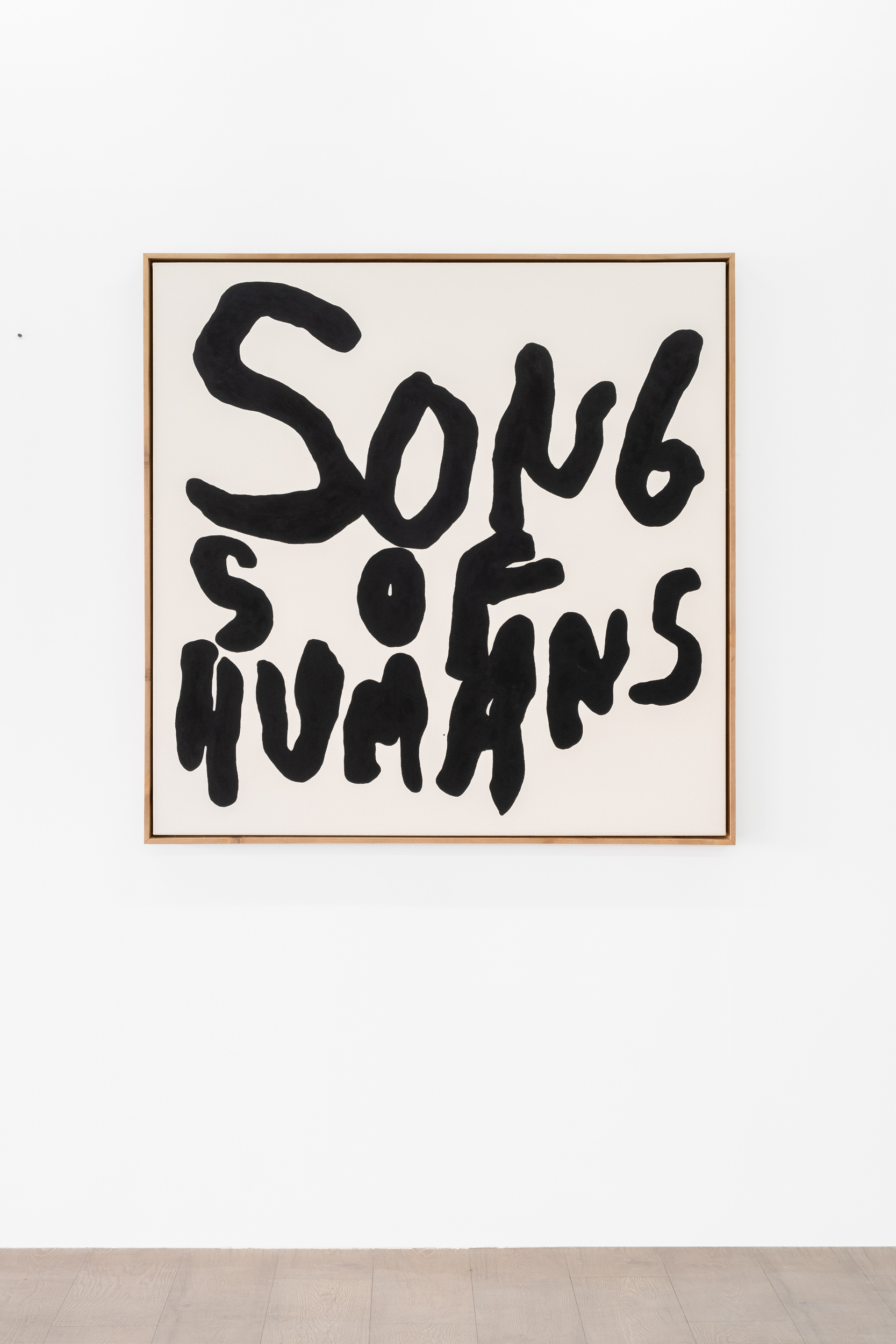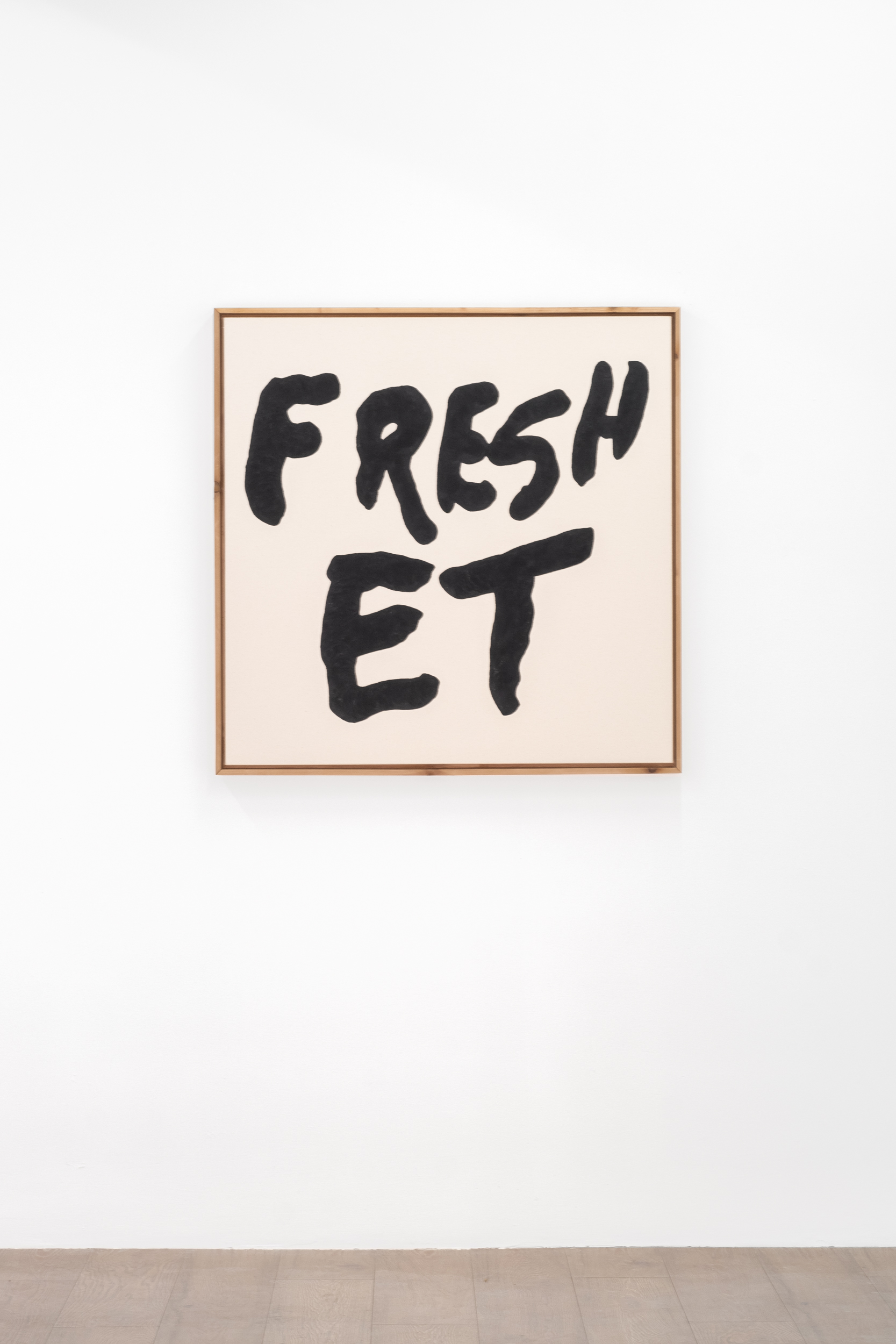To see something with “fresh eyes” means to see something as if for the first time, in a different light or from a unique vantage point. It is often expressed after one has experienced an internal shift of equilibrium following a significant experience or a period of learning, reflection, or change. It may also refer to having taken a detour or new route that led one to return to a place with a new sense of orientation. It can also mean pausing an argument or line of thought so that one can calibrate one’s perspective in the first light of a new day.
Michael Drebert has returned through many seasons to the fertile delta, sand and mudflats, salt and freshwater marshes, and eelgrass beds that compose the South Fraser River estuary. He’s watched, listened and felt the ebb and flow of the weather, aquatic and terrestrial life, and human behaviour. In the studio he works with a minimal palette to concretize his encounters in simple symbols and text.
On the precipice of the new year, clouds of shimmering white birds touch down along the low flood plain of Westham Island. Encountering a phenomenon like this, before it has taken on a name or value, incites a sense of wonder. Learning the words that describe the bird, its flight patterns and vocalizations, inspires nothing short of love. They draw one to pay closer attention to the solar, tidal and topographical features that support the flock’s journey and cultivate intimacy with the world. [1]
Watching the letters of new words take shape underneath the point of a pencil and listening to syllables play in one’s mouth are ways of tracing the ellipse that connects phenomenon, sensation, cognition and communication. The way that a word slips, spills, sputters or floats elaborates one’s experience of its referent. Like a surge of freshwater that amplifies a current’s volume and speed before flooding a coastal plain and diffusing into saltwater, freshet rushes through the lips, then dissolves between the teeth and drops off the roof of the mouth.
[1] The world along the south bank of the delta is increasingly complex. It provides shelter and sustenance for migratory birds and fish and is the traditional hunting and fishing territory of the sc̓əwaθən məsteyəxʷ (Tsawwassen) First Nation and other Coast Salish peoples, including the Hwlitsum (Lamalchi). The vitality of the tidal plain is impacted by the Tsawwassen Ferry Terminal and the Roberts Bank Superport, and these impacts would be exacerbated by the proposed expansion of a second tanker terminal. Participating in the dialogue and culture of this entanglement has expanded Drebert’s vocabulary
To see something with “fresh eyes” means to see something as if for the first time, in a different light or from a unique vantage point. It is often expressed after one has experienced an internal shift of equilibrium following a significant experience or a period of learning, reflection, or change. It may also refer to having taken a detour or new route that led one to return to a place with a new sense of orientation. It can also mean pausing an argument or line of thought so that one can calibrate one’s perspective in the first light of a new day.
Michael Drebert has returned through many seasons to the fertile delta, sand and mudflats, salt and freshwater marshes, and eelgrass beds that compose the South Fraser River estuary. He’s watched, listened and felt the ebb and flow of the weather, aquatic and terrestrial life, and human behaviour. In the studio he works with a minimal palette to concretize his encounters in simple symbols and text.
On the precipice of the new year, clouds of shimmering white birds touch down along the low flood plain of Westham Island. Encountering a phenomenon like this, before it has taken on a name or value, incites a sense of wonder. Learning the words that describe the bird, its flight patterns and vocalizations, inspires nothing short of love. They draw one to pay closer attention to the solar, tidal and topographical features that support the flock’s journey and cultivate intimacy with the world. [1]
Watching the letters of new words take shape underneath the point of a pencil and listening to syllables play in one’s mouth are ways of tracing the ellipse that connects phenomenon, sensation, cognition and communication. The way that a word slips, spills, sputters or floats elaborates one’s experience of its referent. Like a surge of freshwater that amplifies a current’s volume and speed before flooding a coastal plain and diffusing into saltwater, freshet rushes through the lips, then dissolves between the teeth and drops off the roof of the mouth.
[1] The world along the south bank of the delta is increasingly complex. It provides shelter and sustenance for migratory birds and fish and is the traditional hunting and fishing territory of the sc̓əwaθən məsteyəxʷ (Tsawwassen) First Nation and other Coast Salish peoples, including the Hwlitsum (Lamalchi). The vitality of the tidal plain is impacted by the Tsawwassen Ferry Terminal and the Roberts Bank Superport, and these impacts would be exacerbated by the proposed expansion of a second tanker terminal. Participating in the dialogue and culture of this entanglement has expanded Drebert’s vocabulary.
















